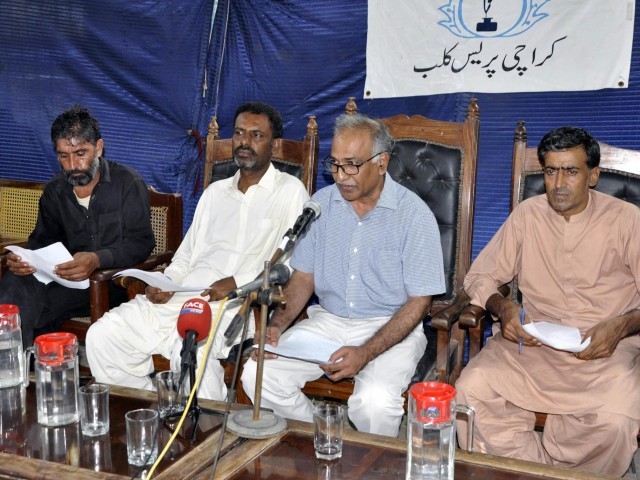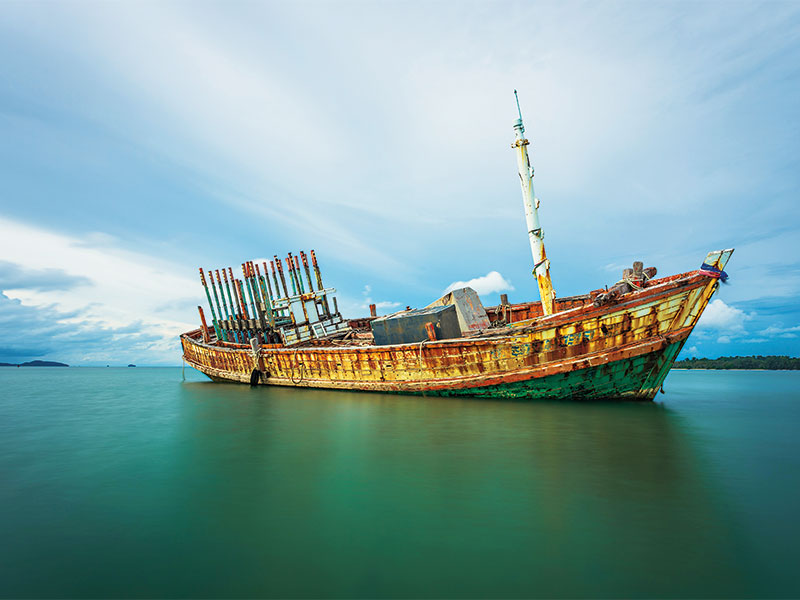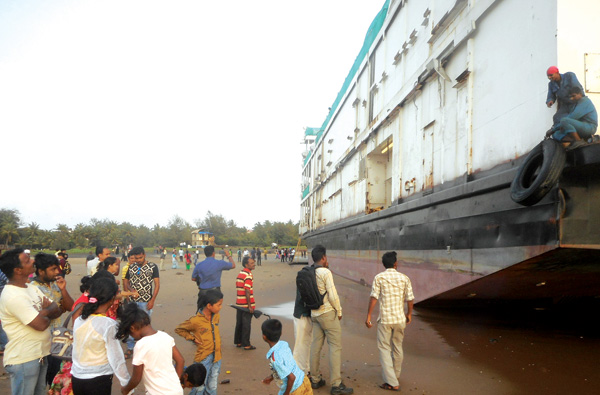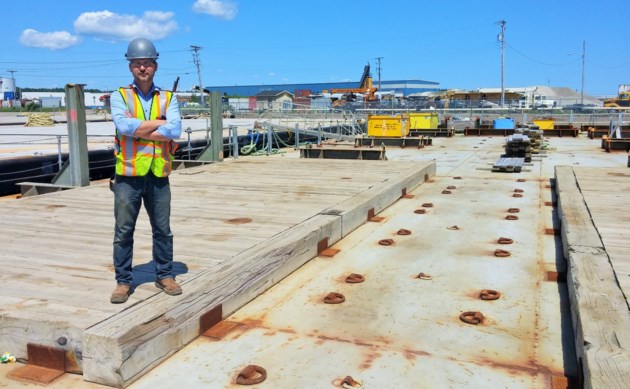
KARACHI: The Ship Breaking
Workers Union Gadani has warned of going on strike in mid-August if their
employers and the government do not fulfil their demands of provision of health
and safety facilities at workplaces, increments in salaries and wages as well
as special legislation for their industry.
Addressing a press
conference on Thursday at the Karachi Press Club, union president Bashir
Mehmoodani said that the ship-breakers and authorities seemed least bothered
about workers’ safety at the yards, despite witnessing one of the deadliest
disasters in the history of the industry last November.
On November 1, 2016, 26
workers were killed and dozens others injured when a decommissioned oil tanker,
MT Aces, caught fire during the dismantling process. The blaze ripped through
the tanker and continued to rage for three to four days due to the lack of fire
extinguishing facilities at the yard.
Mehmoodani, who was part of
a tripartite committee formed to oversee the compensation process to the
victims of the fire and to propose necessary rules and regulations for
ship-breaking industry, said that nothing has been done to rectify the
shortcomings other than verbal assurances from the employers and authorities.
“Three months on, two-acres
of land has been given by a local resident for the construction of a hospital
in Gadani but the employers who pledged to establish the health facility have
not started any work nor have they responded,” he said. “Two to three people
are injured daily during the work but, unfortunately, no one cares.”
Nasir Mansoor, National
Trade Union Federation (NTUF) deputy general secretary, commented that the
November tragedy drew the attention of the whole world towards the precarious
working conditions in Gadani and the government also formed a committee under
the federal minister for production to investigate the matter.
Around nine months have
passed but the committee’s report has yet to be made public, he said. This
reflects how much the government and employers are concerned about the
labourers who, through their sweat and blood, earn them billions of rupees in
revenue.
Mansoor said that a
so-called dispensary established at the yard still awaits a doctor while the
ambulances stationed at a few yards are without drivers. “Expired fire
extinguishers and out-dated safety equipment, which are actually from scrapped
ships, have been installed at a few yards to give an impression that safety
measures have been taken.”
The Gadani ship-breaking
yards cater to around 33% of the country’s iron needs and provide raw material
to the majority of rerolling mills, he said, adding that at least 3,500 to
4,000 workers are currently directly associated with the dismantling work.
“If a worker is injured
during the work, the employers at first do their best to cover up the incident
and offer a meagre amount to the injured to get medical aid,” Mansoor claimed.
“Six workers have lost their lives since the oil tanker tragedy while many
others have been injured. It seems that the government has left the workers at
the mercy of their employers who only care for their profits.”
NTUF President Rafiq Baloch
said that the government had pledged to move legislation about the
ship-breaking industry but nothing has been done. “The situation would have
been better if labour laws were implemented at the yards.”
He said that the police,
labour department, environmental watchdogs, local media and other institutions
were still relying on black money from the employers to remain tight-lipped
about their wrongdoings. The NTUF and labour union leaders warned that if the
ship-breakers and the government did not fulfil their demands within a week
they would resort to protests and then a strike would be called at the yards in
mid-August. They demanded that the wages be increased by at least 50% with
effect from this fiscal year.
Source: the
express tribune. 28 July 2017
https://tribune.com.pk/story/1468071/gadanis-ship-breaking-workers-threaten-go-strike/


/cdn.vox-cdn.com/uploads/chorus_image/image/55715767/mejwdb5n54z0uyzz.0.jpg)
/cdn.vox-cdn.com/uploads/chorus_asset/file/8853125/8075530537_84af7ca2df_o.jpg)
